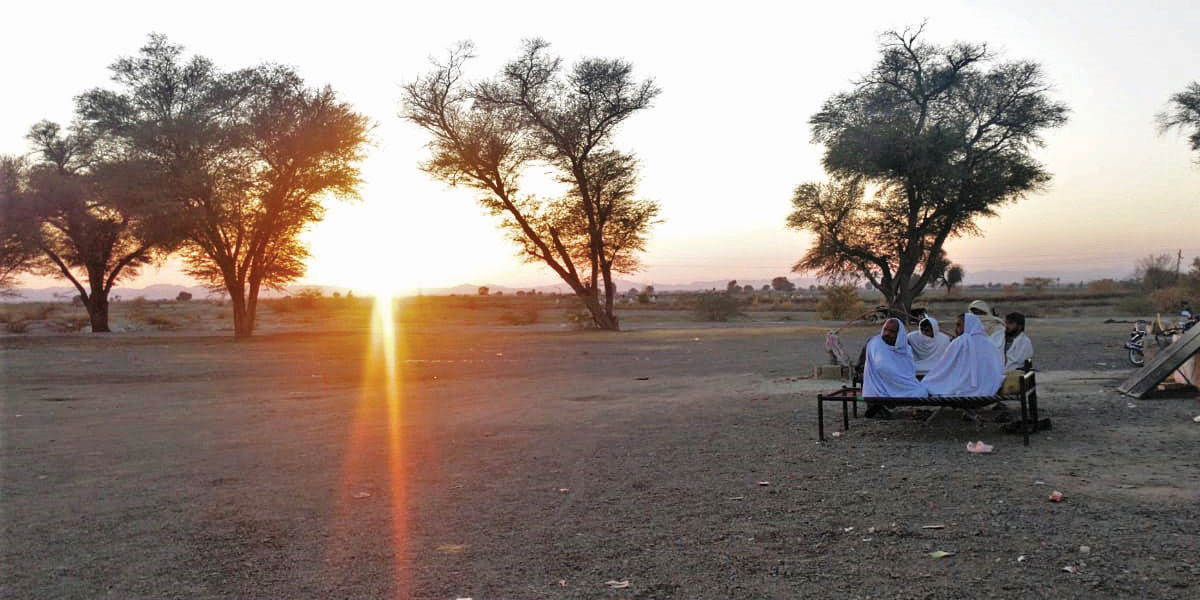Synopsis
The IPCC’s report details factors that contribute to global heating leading to a possible ecosystem collapse

The rural and urban areas across Pakistan are going to face serious ‘consequences’ of the climate crisis. The alarming conditions were indicated by the United Nations Climate Change Agency in the report of the Intergovernmental Panel on Climate Change (IPCC).
The landmark report was approved by more than 200 countries and it detailed the factors contributing to the effects of global heating. The report specifies extinction, ecosystem collapse, the spread of mosquito-borne diseases, deadly heat, water shortages, and reduced crop yields due to extreme weather. These factors are likely to measure worse due to global heating.
The IPCC report warns of future locust attacks in the country, stating that the “appropriate temperatures and increased rainfall in the deserts is creating favourable conditions for locusts to live and spread across the country.”
The report also mentioned recent locust attacks in Pakistan, other countries in South Asia and the Africa region, which have destroyed crops, ultimately impacting the farmers’ incomes and causing a dent to the agriculture sector.
Impact on agriculture
The report threw light over the agriculture status in Pakistan said that the sector will “face floods, droughts and heatwaves which cause diseases to the crops,” resulting in the losses of the crops. The report also warns about the warm climate in the arid land of South Punjab leading to rapid grain formation, which is an ‘irreversible’ effect of the climate crisis in Pakistan.
The IPCC report also cites successful and unsuccessful methods of climate adaptation and reads that the changes in crop sowing and harvesting times as well as rural-urban migration are among the ways to deal with it across the region. It mentioned initially that is more harmful than good to the environment. The report also elaborated on the planting of the eucalyptus trees in the country and said it should be classified as a problem due to their high water intake.
Impact on water
The report highlighted that Pakistan will face more water problems in the future because Pakistan, Bangladesh, China and India together are responsible for 50 per cent of global groundwater abstraction. The report warns that in Asia, the demand for water for irrigation, industry and domestic needs will increase by 30-40pc in the coming decades.
The report explained that in urban areas of Pakistan, heatwaves, floods, droughts, hurricanes and rising sea levels have severely affected people’s incomes, health, lives, property, energy and transportation systems. The report mentioned the hottest city in the country and further said that Hyderabad is going to be the hottest city, followed by Jacobabad, Bahawalnagar and Bahawalpur while Karachi may also face severe heatwaves.
The report also cites growing malnutrition due to the climate crisis and the effects on children’s development and health such as dengue, malaria, intestinal infections and waterborne diseases. The report further emphasises that agrochemicals have already damaged many parts of Pakistan, Nepal, India and China.
Pakistan is already among the top 10 countries affected by the climate crisis, posing a number of threats to the well-being and prosperity of the people. Pakistan already witnessed several climate and weather-related natural hazards due to its geographical diversity and a varied tropical, continental climate.
Recently, the Asian Development Bank (ADB) and World Bank (WB) released a joint study titled ‘Climate Risk Country Profile’ for Pakistan. The two international lending agencies estimated that Pakistan is facing up to $3.8 billion in annual economic loss due to the climate crisis impacting across the globe.
To know about the recent development, Bol News contacted Sahibzada Muhammad Jawad, who is a student of doctorate degree of biodiversity in Islamia University in Peshawar and is now researching in the American Museum of Natural History in New York.
He stated, “The IPCC report explicitly states that the climate crisis is a major threat to human development and if temperatures continue to rise, it will be impossible to address them.”
The environmental journalist elaborated that the new IPCC report showed that the threats from the previous reports are already becoming a reality. “And further climate threats to the country will face serious weather effects across Pakistan.”
He further commented on the IPCC report, mentioning that the policymakers have failed to pay heed to the issues. “For the past 40 years, the world temperature has alarmingly increased due to which we [should] reconsider and rethink all the policies to get back on track.”
The Peshawar-based journalist was of the view that the climate crisis issue is “more dangerous than terrorism.”
He commented, “The IPCC report was probably not covered due to the recent Ukraine-Russia tensions but the climate issue is more dangerous and a bigger threat than any terrorism incident across the globe.”
The climate advocate suggested making a national action plan for the upcoming climate threats. “All departments of the federal and provincial governments have to come forward and make a plan which will be on expansion of agriculture, bringing together universities, health departments, rural, urban authorities and the private sector to improve the climate across Pakistan.”
He stated, “We should develop research-based medium- and long-term climate adaptation plans. These will include comprehensive action with civic authorities, universities, private sector, women and men farmers and civil society organisations involved in order to ensure relevant and practical planning.”
The climate journalist suggested that it is time to train all sectors on the challenges and opportunities during the climate crisis, including those related to the health, agriculture, industries, media and IT sectors.
The writer is a freelance multimedia journalist based in Peshawar.
He tweets @JawadYousufxai
Catch all the Breaking News Event and Latest News Updates on The BOL News
Download The BOL News App to get the Daily News Update & Live News.












 Read the complete story text.
Read the complete story text. Listen to audio of the story.
Listen to audio of the story.